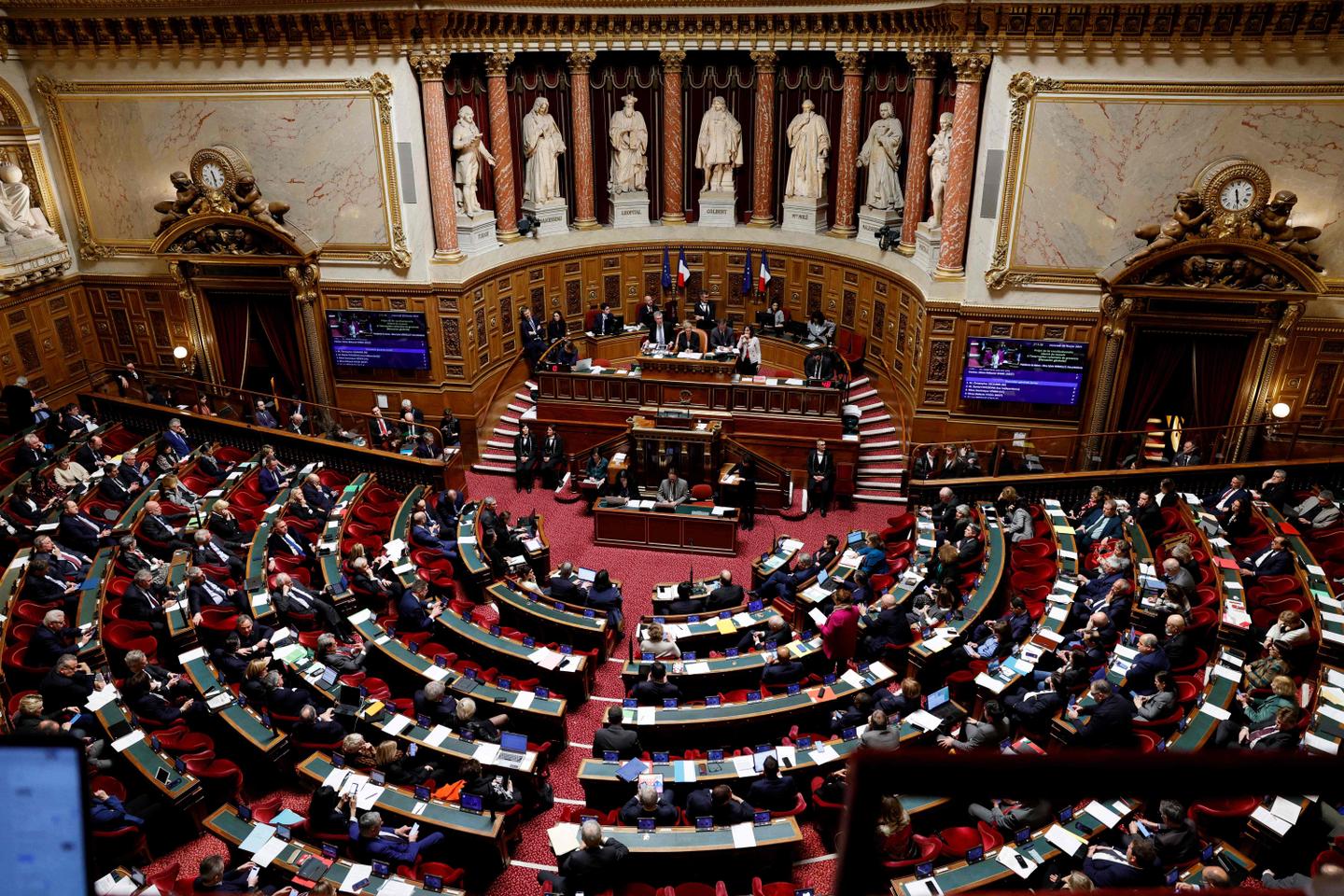


France's Sénat on Thursday, March 21, overwhelmingly voted against a free-trade agreement between the European Union and Canada after an unusual alliance in the upper house between left- and right-wing opponents of French President Emmanuel Macron.
The Comprehensive Economic and Trade Agreement (CETA) has been in force provisionally since 2017, but requires ratification in all European Union member countries to take full effect.
But the rejection of the CETA trade deal – approved in the Assemblée Nationale lower house in 2019 by a slim margin – will only be confirmed if the Sénate completes debating the legislation on Thursday within a very limited allotted time.
The Communist group placed the treaty on Thursday's Sénat agenda, with the stated aim of getting it defeated. In a rare temporary alliance, the leadership of the conservative Les Republicains (LR) party, which has a majority in the Sénat, also opposed to the trade pact.
As the Sénat debate got underway, Foreign Trade Minister Franck Riester called the opposition's strategy a "crude maneuver" and "an unacceptable manipulation with serious consequences for our country."
Much of the opposition to the pact focused on food, with Bruno Retailleau, LR's leader in the Sénat, saying that "we need free-trade agreements, but not at the expense of our sovereignty, especially for food."
Ratified by 17 EU countries
Like all EU trade deals, CETA was negotiated by the European Commission, but also needs approval from each EU member. Seventeen of them have ratified the deal, with the process in 10 countries – including France – still ongoing. The United Kingdom ratified the deal when it was still in the EU.
Cyprus's parliament is the only one to have rejected the agreement outright, over a controversy about a geographical indication for halloumi cheese. But under EU rules, such a vote only impacts CETA's application if a government officially notifies the EU of the rejection, which Cyprus has not done. Instead, it plans to re-submit the proposal later.
Although a no-vote does not in itself kill CETA, the French government worries about the impact of any rejection. "We have to be careful not to send a negative signal concerning an agreement that produces benefits," Riester had warned.
The government accused the opposition of weaponizing CETA ahead of the June European elections seen as a key test of Macron's popularity. "Let's not be naive," quipped Riester, saying the trade deal was being "instrumentalized in the middle of the European election campaign."
Food safety
While the French government defended CETA, there has been also plenty of opposition, notably around food safety, with critics pointing to Canada's laxer approach to genetically modified organisms, hormones, pesticides and herbicides, and lower standards on animal welfare compared to the EU.
There have been angry demonstrations in several EU countries against the deal, including by climate activists. Criticism has also come from farmers and industrial sectors, notably over access to the Canadian market, and regulations.
"Farming in central Canada is completely industrial and operates without any rules," said LR senator and professional farmer Laurent Duplomb, adding he hoped to "fire a warning shot" in the direction of the EU. Senators reported receiving an unusual amount of attention from companies, associations, the government and the Canadian embassy all hoping to sway them.
The trade deal's backers say French exports to Canada increased by 33% between 2017 and 2023, while imports rose 35%, thanks to the agreement. Wine and dairy producers are among the main beneficiaries, the government says.
